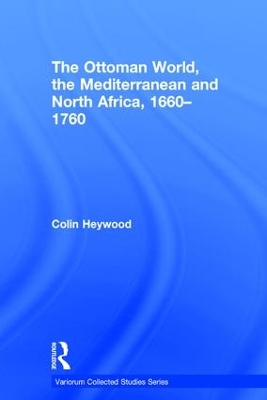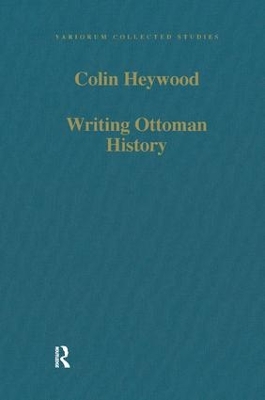Variorum Collected Studies
2 total works
The Ottoman World, the Mediterranean and North Africa, 1660-1760
by Colin Heywood
Published 3 June 2013
Dr Heywood's second volume of collected papers in the Variorum series brings together fourteen studies published between 2000 and 2010. They represent two of the main strands of his interests during the past decade: the era of Ottoman history dominated by the ministerial family of KAprA1/4lA1/4; and the maritime history of the 'post-Braudelian' Mediterranean, in the later 17th and early 18th centuries. Aspects of the KAprA1/4lA1/4 era under examination in Part One include the shifting chronology of the Aehrin campaign of 1678; a study of the role of renegades in Ottoman service, linked in this instance to the Venetian betrayal of the Cretan fortress of Grabusa to the Ottomans in 1691, and a study of the reorganisation of the Ottoman state courier service in 1696, together with three studies of English diplomacy at the Porte during the 'Long War' of 1683-99. In Part Two maritime and Mediterranean themes predominate. Four papers revolve around the complexities of the English maritime and commercial presence in Algiers in the decades before and after 1700, and two examine the Ottoman maritime frontier in the western Mediterranean and in the Aegean in the same period. The volume concludes with a look at the daily (and mainly maritime) uncertainties in the life of the French community in Cyprus at the turn of the eighteenth century, and an examination of the emergence of Fernand Braudel's intellectual involvement with Ottoman history, down to the publication in 1949 of his epochal study of the Mediterranean in the age of Philip II.
The study of Ottoman history has resulted in the construction of a number of Ottoman ’pasts’, some of which have been proved recoverable and essentially durable, while others have been seen to owe too much to extraneous preconceptions. In the articles collected here, Dr Heywood has questioned some of the perceived certainties in the field of Ottoman history and historiography, focusing in particular on the work of Paul Wittek and the idea of the 'frontier'. Other studies are based on the abundant surviving documentation, and look at specific topics in 17th-century Ottoman history and in Anglo-Ottoman relations, for example Sir Paul Rycaut’s view of the Ottoman empire, or the organisation of the Ottoman postal service and roads, and the cannon-foundry in Istanbul.

